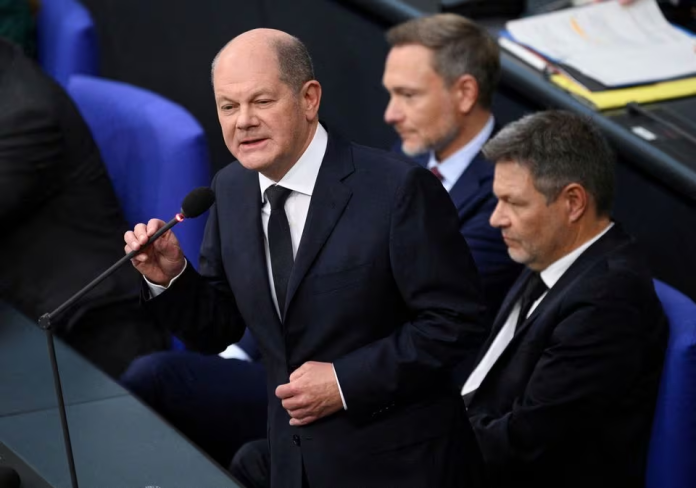German authorities faced harsh criticism after announcing spending cuts and tax hikes to patch a 60-billion-euro hole in the “climate and transformation fund,” caused by a Constitutional Court ruling – Euractiv.
German Chancellor Olaf Scholz (SPD/S&D), Vice Chancellor Robert Habeck (Greens), and Finance Minister Christian Lindner (FDP/Renew) announced cuts on Wednesday for a total of 45 billion euros from the Climate and Transformation Fund allocated for the 2024-2027 period.
As part of these funds will be covered by money from the regular budget, a €17 billion hole in the 2024 is planned to be plugged by spending cuts and higher energy taxes.
Marcel Fratscher, head of the German Institute for Economic Research (DIW), made the following statement:
The federal government’s agreement on the 2024 budget is a lazy compromise with which the federal government is merely postponing the problems into the future. The agreement means that the state will permanently lack €60 billion for climate protection and transformation.
The heads of the coalition government agreed to raise the carbon tax on heating and road fuel from the current €30 to €45 per tonne of CO2 in 2024, which would raise petrol and diesel prices by 4-5 cents a litre, according to the German automobile club ADAC.
“The faster increase in the CO2 price will be at the expense of citizens. In return, the German government still owes the climate bonus with which the CO2 price is to be returned to the people.”
As a result of the agreement, electricity prices will also rise by about 3 cents per kilowatt-hour (kWh), as a planned subsidy to relieve consumers of grid charges will no longer be funded. German industry association BDI, led by president Siegfried Russwurm, lambasted the electricity price hike, stating it “does not help our global competitiveness at all, but on the contrary makes it even more difficult.”
Energy will become more expensive for all of us.
The agreement also includes cuts in tax exemptions for agricultural diesel fuel and vehicles, which has evoked sharp criticism even within the government itself, including Agriculture Minister Cem Özdemir (Greens).
“I have always warned against placing a disproportionate burden on our agriculture. If both the agricultural diesel subsidy and the motor vehicle tax exemption are cancelled, this will be the case.”
